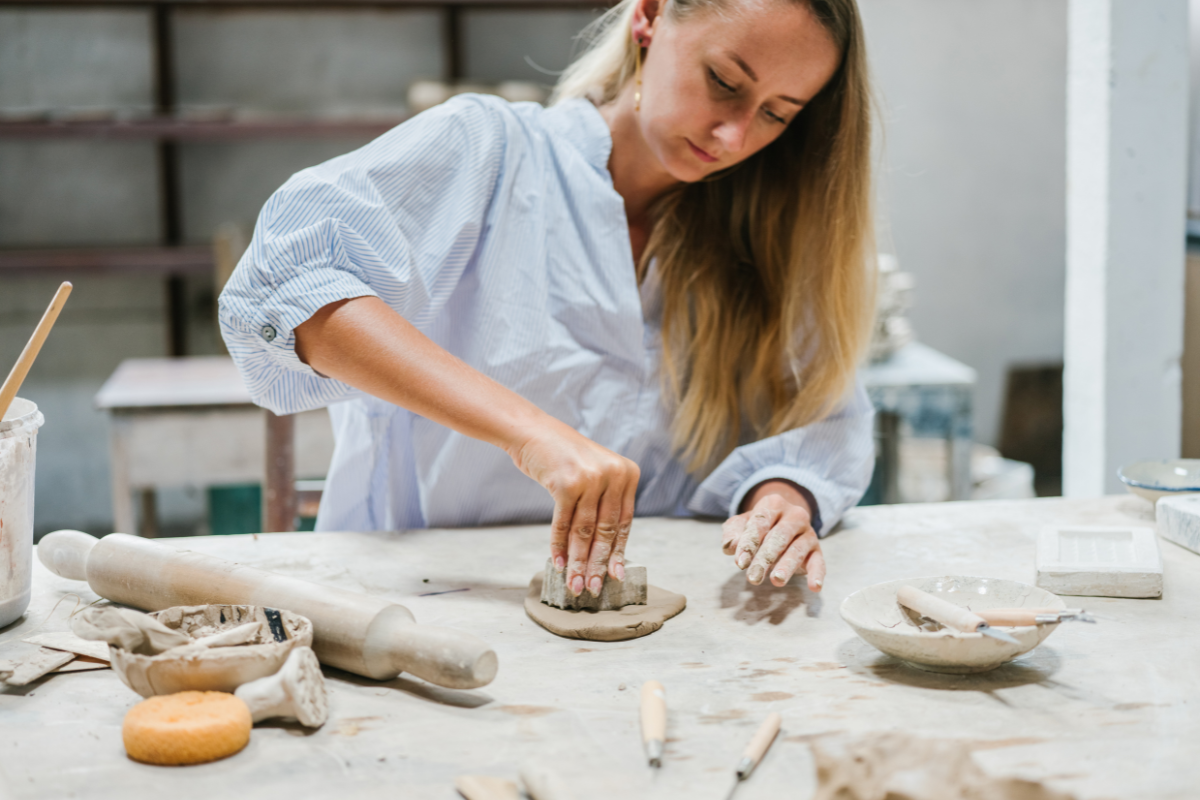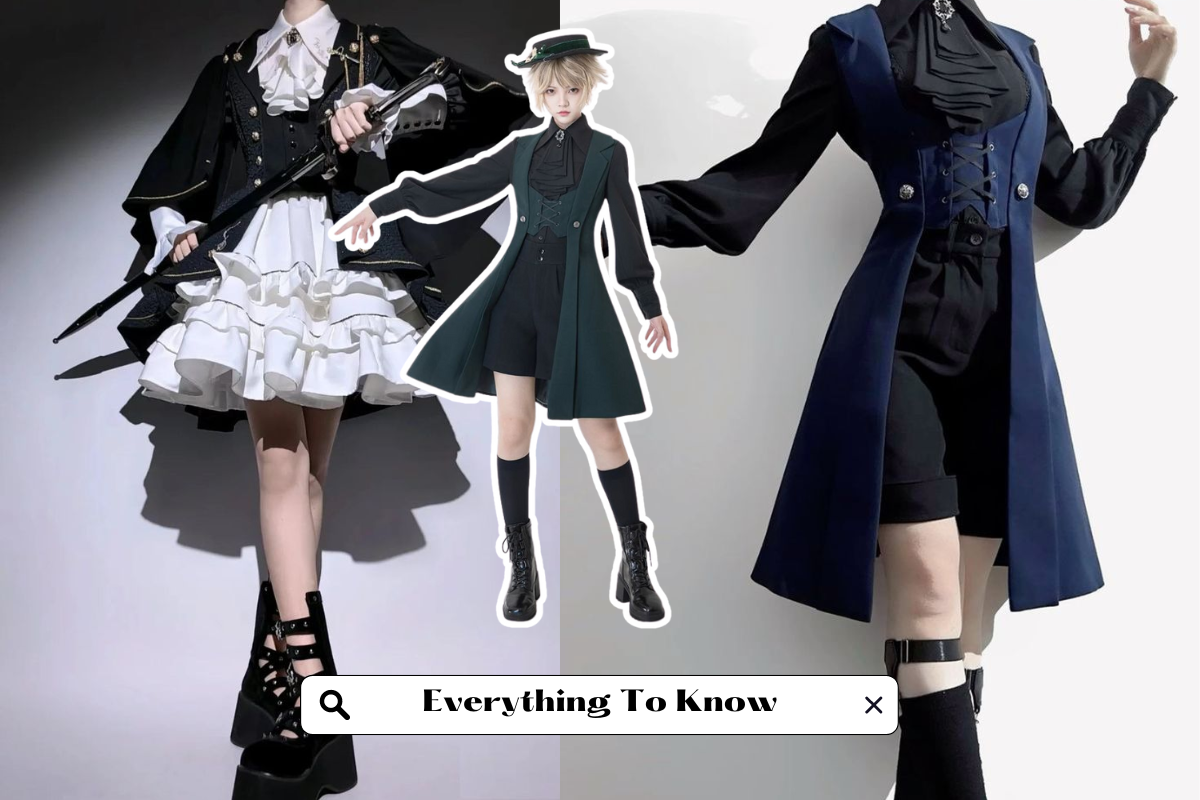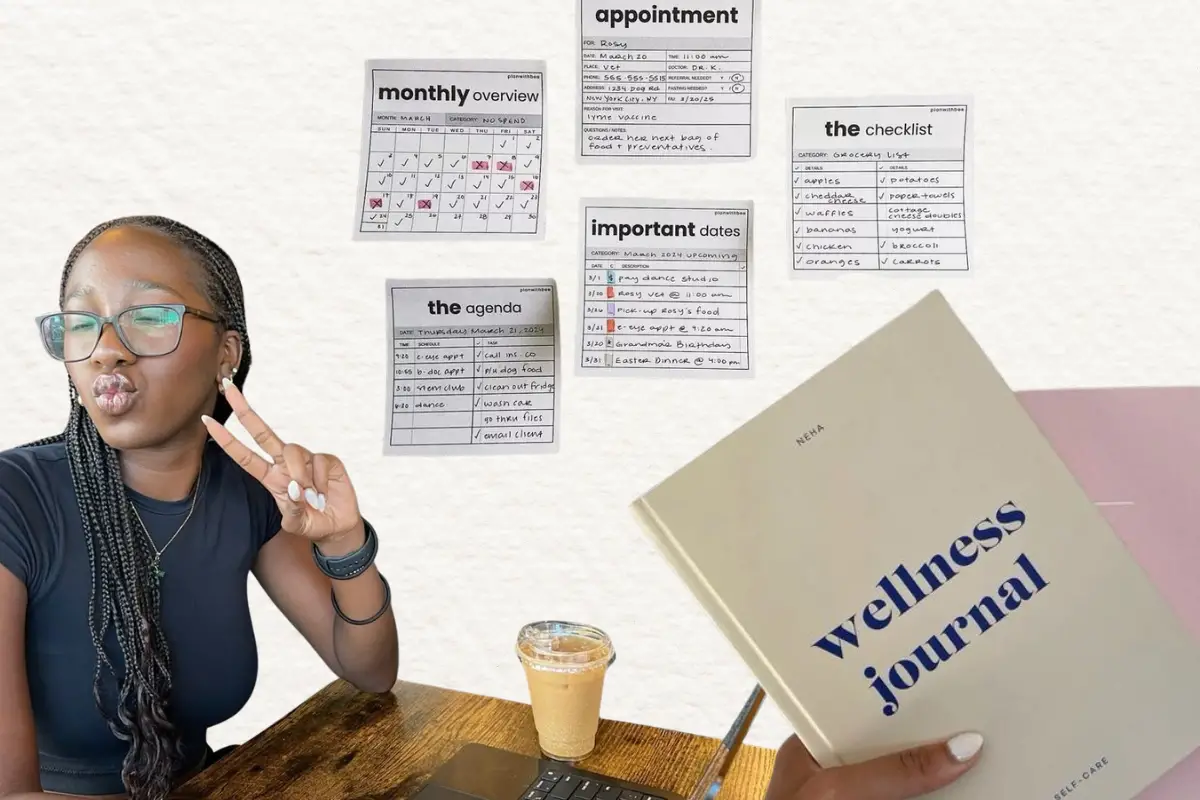Let’s face it—life gets hectic, and sometimes you just need something for you. That’s where hobbies come in. Whether it’s learning a new language, rock climbing, or finding a creative outlet like painting, hobbies help you rediscover joy and balance.
Hobbies can reduce stress, boost confidence, and even improve problem-solving skills. Plus, they’re a chance to explore different hobbies and interests, like physical activities or relaxing hobbies to do at home. From creative pursuits to social activities, there’s a list of hobbies out there waiting for you.
So, if you’ve been wondering, What are some hobbies I can try? or I need a hobby but don’t know where to start, it’s time to dive in. The best hobby is one that brings you happiness and helps you grow.
Steps to Discovering the Perfect Hobby for You
Finding a hobby can feel overwhelming, but it doesn’t have to be! Here’s how you can discover the perfect one for you:
1. Reflecting on Your Passions and Personality
Start by asking yourself: What do I love? What excites me? Your hobbies should reflect your personality and interests. If you’re creative, try a creative outlet like painting or journaling. Love physical activity? Rock climbing or martial arts might be your thing. If you’re more introverted, look into relaxing hobbies to do at home, like reading, crafting, or playing a board game. Think about hobbies that align with your goals and what feels enjoyable.
2. Considering Your Time, Budget, and Resources
Not all hobbies need to break the bank. Reflect on how much time and money you can realistically spend. For example, hobbies like gardening or learning a new language are affordable and flexible. If your schedule is tight, explore easy hobbies to pick up, like cooking or yoga at home. If you’re looking to save money, consider hobbies that use resources you already have, like upcycling or DIY projects.
3. Exploring Hobbies That Fit Your Goals
Think about what you want to get out of your hobby. Do you want to reduce stress, improve communication skills, or simply have fun? Look for hobbies to try in 2025 that match your goals. For social connections, join a book club or take a dance class. For skill-building, try a creative hobby or play an instrument. If you’re wondering, What are some great hobbies for personal growth?—martial arts, photography, or even wine tasting can be unique hobbies to explore.
Overcoming Common Challenges When Starting a Hobby
Starting a hobby is exciting, but it’s not always smooth sailing. Many people face challenges that make it hard to begin or stay consistent. Let’s explore three common obstacles and how to overcome them: breaking out of your comfort zone, finding motivation, and managing time for your new passion.
1. Breaking Out of Your Comfort Zone
Trying something new can feel intimidating, especially if it’s outside your usual interests or skills. Fear of failure or judgment often holds us back.
How to Overcome It:
- Start Small: Choose a low-pressure version of the hobby. For example, if you want to try painting, start with a simple DIY kit instead of signing up for an advanced class.
- Embrace the Beginner Mindset: Remind yourself that it’s okay to be a beginner—everyone starts somewhere!
- Seek Support: Join a beginner-friendly group or community where others are in the same boat.
Example: I was nervous about starting yoga because I thought I wasn’t flexible enough. But joining a beginner class and practicing at home helped me ease into it.
2. Finding Motivation to Try Something New
The hardest part is often just starting. It’s easy to procrastinate or let self-doubt creep in.
How to Overcome It:
- Visualize the Benefits: Think about why you want to start this hobby. Is it to relax, improve a skill, or meet new people? Keep your “why” in mind.
- Set Achievable Goals: Break your hobby into small, manageable steps. For instance, if you want to learn guitar, start with 15 minutes a day rather than aiming to master full songs immediately.
- Make It Fun: Pick a hobby you’re genuinely excited about, and don’t hesitate to experiment if one doesn’t stick.
Example: I lacked motivation to start journaling until I bought a beautiful notebook. That small step made the process exciting and rewarding.
3. Managing Time for Your New Passion
Life can feel too busy to add something new, but prioritizing a hobby can be incredibly fulfilling.
How to Overcome It:
- Schedule It: Treat your hobby like an important appointment. Add it to your calendar and honor that time.
- Incorporate It Into Your Routine: Choose hobbies that fit seamlessly into your lifestyle. For instance, you can listen to language podcasts during your commute or sketch while watching TV.
- Start with Micro-Habits: Even five minutes a day can help you build momentum.
Example: I thought I didn’t have time to learn a new language, but practicing vocabulary during my lunch break made it doable.
How to Turn a Hobby into a Lifelong Passion
Turning a hobby into something you’re deeply passionate about doesn’t happen overnight—it takes dedication, enjoyment, and a little effort. Here are three ways to cultivate your hobby into a lifelong passion:
1. Building Skills Over Time
Passion often comes from mastery, and the more you grow your skills, the more fulfilling your hobby becomes.
How to Do It:
- Practice Regularly: Set aside consistent time to practice and hone your craft. Even short, daily efforts add up over time.
- Learn Continuously: Take classes, watch tutorials, or read books about your hobby to deepen your knowledge and abilities.
- Challenge Yourself: Set new goals to keep things exciting, whether it’s learning a harder song on guitar or tackling a complex knitting pattern.
Example: When I started gardening, I knew nothing about plant care. Over time, I learned about soil types, seasonal planting, and pest control, which made the process even more enjoyable.
2. Sharing Your Hobby with Others
Passions thrive when they’re shared. Connecting with like-minded people can deepen your love for your hobby and open doors to new opportunities.
How to Do It:
- Join Communities: Look for local clubs, online forums, or social media groups related to your hobby.
- Teach or Mentor: Helping someone else get started can reignite your enthusiasm and remind you why you love what you do.
- Collaborate: Teaming up with others—whether it’s co-writing a story or participating in a group art project—can bring fresh energy to your hobby.
Example: I joined a photography group and started sharing my work online. The feedback and encouragement I received motivated me to keep going.
3. Tracking Your Progress and Growth
Seeing how far you’ve come can keep your passion alive by reminding you of your accomplishments and inspiring you to keep improving.
How to Do It:
- Keep a Journal or Portfolio: Document your journey, whether it’s a photo album of completed projects or a notebook tracking your achievements.
- Reflect Regularly: Look back at old work or milestones to see how much you’ve improved.
- Celebrate Wins: Reward yourself for reaching key goals, big or small—it’s a great way to stay motivated.
Example: I kept a sketchbook from when I started drawing, and flipping through my early work always reminds me of how much I’ve grown.
The Social Side of Hobbies
Hobbies aren’t just about personal enjoyment—they can also offer incredible opportunities to connect with others. Whether you’re looking to share your passion, build friendships, or collaborate creatively, the social side of hobbies can add a whole new layer of excitement and fulfillment. Here’s how you can make the most of it:
1. Finding Community Groups and Events
One of the best ways to dive deeper into a hobby is by connecting with others who share your interests.
How to Do It:
- Join Local Clubs or Meetups: Look for hobby groups in your area or through websites like Meetup.com. These gatherings can range from art classes to hiking groups.
- Attend Events and Workshops: Many communities host events like craft fairs, exhibitions, or fitness classes. These can be great places to meet others and learn new skills.
- Look for Online Communities: Social media platforms, online forums, and Facebook groups often have vibrant hobbyist communities.
Example: When I started learning how to play the piano, I joined an online forum for beginners. The group offered support, shared tips, and even organized virtual meetups.
2. Building Friendships Through Shared Interests
Hobbies can be the perfect foundation for meaningful friendships. Sharing a common interest creates an instant connection.
How to Do It:
- Take Classes Together: If you’re into painting or photography, consider signing up for a class with a friend or meeting someone at a local studio.
- Attend Hobby-Related Socials: Many hobby-based groups host social events, from group runs to knitting circles. These environments make it easy to meet new people.
- Collaborate on Projects: Invite friends or fellow hobbyists to join you in a larger project. Whether it’s a collaborative art piece or a group blog, working together strengthens bonds.
Example: I met a close friend through a yoga class. We started practicing together regularly, which turned into a wonderful friendship outside of class as well.
3. The Joy of Collaborating with Others
Collaborating with others in your hobby can lead to exciting new experiences and boost your passion.
How to Do It:
- Join Group Projects: Collaborate on a hobby-related project, like a photography exhibition, a community garden, or a DIY craft fair.
- Engage in Creative Partnerships: Partnering with someone who has complementary skills can expand your knowledge and spark new ideas.
- Take Part in Challenges: Many hobbies have online challenges (e.g., writing challenges, art prompts) that invite group participation and foster a sense of community.
Example: I worked on a collaborative mural with fellow artists, which not only taught me new techniques but also sparked friendships with people I would have never met otherwise.
4. Resources to Help You Get Started
Whether you’re starting from scratch or looking to take your hobby to the next level, plenty of resources can help you along the way.
Online Platforms for Learning New Skills:
- Websites like Skillshare, Udemy, and YouTube offer countless tutorials and classes on almost every hobby imaginable.
- Social platforms like Pinterest and Instagram are full of inspiration and step-by-step guides shared by hobby enthusiasts.
Books and Guides for Beginners:
- Many hobbyists publish books and guides that provide comprehensive advice. Whether it’s knitting, photography, or gardening, you’ll find expert resources to help you start with confidence.
- Your local library can be a great source for free guides and books to help you explore new hobbies.
Free and Low-Cost Tools to Start Your Journey:
- You don’t have to spend a lot of money to get started. Many hobbies have free or low-cost entry points. You can start knitting with just some yarn and needles, or practice photography with your smartphone.
- Free tools, like apps for learning new languages or free design software, can also provide excellent starting points for new hobbies.











